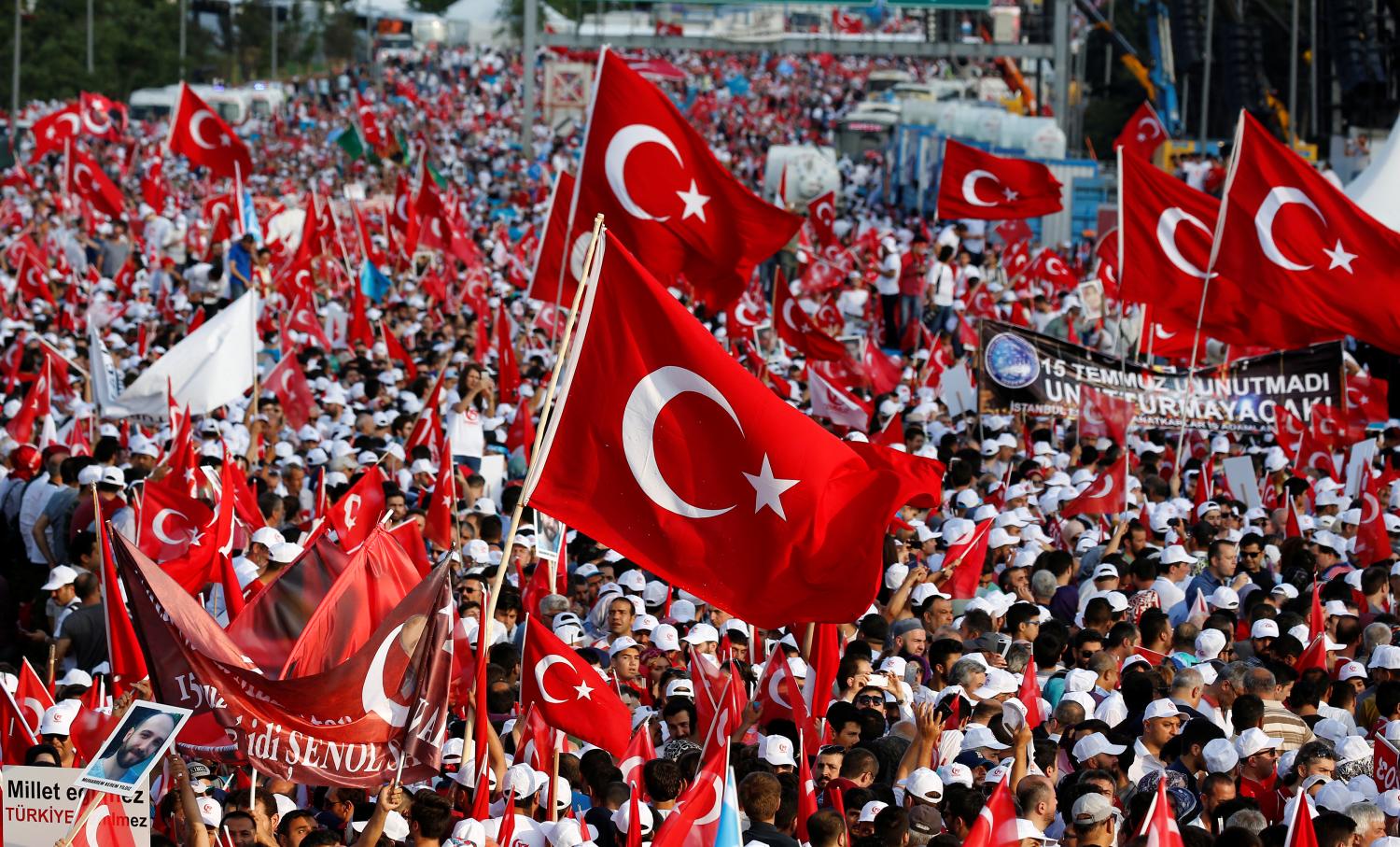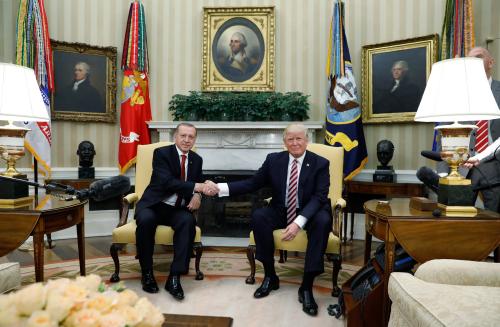While Turkey’s leadership is problematic, the country faces real threats and needs constructive and principled engagement from the United States and Europe, Amanda Sloat argues in a paper for the Brookings – Robert Bosch Foundation Transatlantic Initiative (BBTI).
 Policymakers in the United States and European Union are struggling with how to manage their relations with Turkey. What makes the country such a conundrum is that its problematic leadership faces real threats. Turkey is confronting challenges from the aftermath of the July 2016 coup attempt and the destabilizing effects of the Syrian war. Yet the country’s president is growing more authoritarian, using virulent anti-Western rhetoric, and making foreign policy choices contrary to the interests of the trans-Atlantic alliance. The policy goal is navigating this gray zone today to preserve the possibility of better relations in the future.
Policymakers in the United States and European Union are struggling with how to manage their relations with Turkey. What makes the country such a conundrum is that its problematic leadership faces real threats. Turkey is confronting challenges from the aftermath of the July 2016 coup attempt and the destabilizing effects of the Syrian war. Yet the country’s president is growing more authoritarian, using virulent anti-Western rhetoric, and making foreign policy choices contrary to the interests of the trans-Atlantic alliance. The policy goal is navigating this gray zone today to preserve the possibility of better relations in the future.
The paper begins by examining the main domestic and regional challenges facing Turkey, as well as how these issues impact the country’s relations with its Western allies. It then outlines three possible policy responses for the United States and Europe: abandonment, transactionalism, and engagement. The paper makes the case for taking a long view, as the current period before Turkey’s parliamentary and presidential elections (due sometime before November 2019) will remain difficult. The degree of political, security, socio-economic, and cultural integration between Turkey and the West requires a nuanced and supple style of relationship management. Specifically, the paper advocates for constructive and principled engagement. This entails widening the aperture of government outreach to more officials on a broader range of shared interests; using the prospect of deeper trade and investment links to encourage better governance; expanding people-to-people ties and supporting civil society; and staying true to Western values by speaking out about rule of law and human rights abuses.
The Brookings Institution is committed to quality, independence, and impact.
We are supported by a diverse array of funders. In line with our values and policies, each Brookings publication represents the sole views of its author(s).







